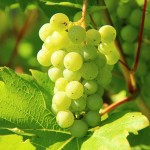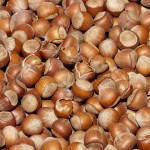Project Origin
 Initiated in October 2002, this project represents the outcome of more than three years of reflection within Euromontana. It addresses the stakes of improved characterisation and European knowledge of mountain agro-food products. With the support of representatives of the agricultural sector, Euromontana decided to survey agro-food product quality as a vehicle of rural development in mountain areas. Therefore, with the help of some of its members, Euromontana launched a survey programme from the European Commission under the 5th RTD Framework Programme managed by DG Research.
Initiated in October 2002, this project represents the outcome of more than three years of reflection within Euromontana. It addresses the stakes of improved characterisation and European knowledge of mountain agro-food products. With the support of representatives of the agricultural sector, Euromontana decided to survey agro-food product quality as a vehicle of rural development in mountain areas. Therefore, with the help of some of its members, Euromontana launched a survey programme from the European Commission under the 5th RTD Framework Programme managed by DG Research.
A Motivating External Context
The mountain regions in Europe are known for the quality of their landscape, environment and products. These regions are also the place where 50 million people live and work, contributing to the development of these areas. However, the relief, isolation, climate and other factors are all permanent handicaps that stand in the way of the development of economic activities.
The recent reform of the Community policies and the preparation of the European Union’s enlargement are bringing European countries new measures for rural development but also new challenges for the most fragile regions. Thus, to cope with the increased competition between the European and world economies, these regions have to find original ways to develop , taking advantage of their specific assets.
Quality production and regions, together with the traditional nature of the activities and the diversity of the environments, are an essential asset of mountain regions. Furthermore, the public’s growing awareness of environmental problems and of the conditions in which food is produced is resulting in new consumption patterns. People’s concerns are focusing on the quality of the products. Product quality is at the heart of many concerns and “mountain” is a term that enjoys a positive image with consumers.
Reflective Thinking within Euromontana
Within Euromontana, there was an early realisation of the potentially positive impact of mountain products on local development. This led to the organisation of the First Euromontana Thematic Seminar (in Saint-Etienne, France, in 1999) on the “Promotion and distribution of mountain quality products”. This seminar gathered a variety of practitioners, including research workers, technical experts and field players who jointly reached the conclusion that this dimension of thought deserved encouragement within Euromontana. Mountain quality products are definitely suitable as a thematic priority. Indeed, mountain areas convey a number of solid defining features and values including relief, climate and biodiversity as well as human work and know-how, which individually and collectively contribute to mountains’ positive representation.
However, the reality of mountain products on the European scale is multi-facetted both due to the diversity of environmental, weather and other situations, and in terms of production organisation and product quality marking management and control.
Therefore, the need emerged to leverage the potential competitive advantage vested in the agricultural products of European mountain areas while reckoning with mountain product diversity.
A European Survey Programme
The survey programme received cofunding from DG Research of the European Commission under key action “Sustainable Agriculture, Fisheries and Forestry, and Integrated Development of Rural Areas including Mountain Areas” of thematic priority “Quality of Life and Management of Living Resources” of the 5th RTD Framework Programme (5th RTDFW). The project fits within the general framework of “Accompanying measures” and its outcomes are therefore to enjoy wide circulation in order to identify future research needs.
Survey Objectives
The aim of the project is to provide strategic information for stakeholders and practitioners working in or on behalf of mountain areas in Europe. This information relates to mountain quality agro-food products and is organised according to three main areas (as identified in the methodology section):
- 1/ identification and characterisation of mountain products and their specific quality features;
- 2/ determination of the key factors of success and failure in the economic success and the local development of mountain products;
- 3/ production of an inventory of existing public and private policies and initiatives on mountain (quality) products in the European countries represented in the partnership.
The above data is collected and analysed for the double purpose of broad circulation via the website to any and all potential users and of structuring the argument to formulate specific recommendations to European and national authorities.
Project Stakes and Delivery
This two-year project is expected to deliver two instruments to assist field practitioners and players in their action in support of mountain quality product development.
Online Strategic Information about Mountain Products
This information website is developed not only to publicise project data and outcomes with any and all interested users, but also as an online information site and future European resource centre for all technicians, researchers, practitioners and stakeholders of mountain agro-food product quality.
European Recommendations in Favour of Mountain Quality Products
Based on the results of field surveys, of reflective thinking within the steering committee of the project and of discussions and interaction at two conferences, observations and proposals are formulated and circulated, in particular to European authorities, and more generally to national and regional authorities.
Survey Methodology
An efficient network of partners
 This two-year survey was conducted by a consortium of 13 organisations from eight different European countries, all active in the field of mountain products and farming. These included development agencies, research centres and universities as well as territorial authorities and associations.
This two-year survey was conducted by a consortium of 13 organisations from eight different European countries, all active in the field of mountain products and farming. These included development agencies, research centres and universities as well as territorial authorities and associations.
The project identified two types of partners base on their role in the survey:
- 1/ 11 ST (Steering Committee) members, who proposed a methodology for both field surveys and analysed the resulting data;
- 2/ 10 TR (Territorial Relays) organisations, which contributed to the collection of data in the different surveyed areas based on the specifications of both questionnaires and circulated their results to the Steering Committee.
Ten Surveyed Areas
The wide diversity of European mountain ranges, both in terms of their geographical formation and weather, was represented through the 10 areas included in the survey programme:
- Both Departments of Savoie, Northern Alps (France);
- The Province of Turin, Western Alps (Italy);
- The Province of Trento, Eastern Alps (Italy);
- The Regions of Pindos and Cholomondas (Greece);
- The Eastern Carpathians (Romania);
- Andalusia (three areas) (Spain);
- The Basque Country (Spain);
- The Region of Sogn (Norway);
- The Tatras Mountains (Poland);
- The Highlands of Scotland (United Kingdom).
Three Thematic Research Areas
Area 1 deals with the intrinsic determinants of mountain area product quality, i.e. raw material production and/or processing methods, local production and links with the area. Also considered was the connection between agricultural products and local traditions and culture.
Area 2 addresses strategies for the development of initiatives in the fields of quality and marketing approaches, bearing in mind the wide diversity of existing mountain products. The collection of large quantities of information will make it possible to analyse successful initiatives and compare them to efforts that can be considered as failures.
Area 3 rather than dealing directly with products, addresses the policies and legislation than govern product quality identification initiatives at European, national and regional level (types of available marks, control schemes, etc.) or contribute to the growth of mountain products. This aim of this part of the programme is to provide an inventory of public and private quality certification systems in the different countries and regions.
Two Sets of Field Surveys
In order to collect strategic information on mountain agro-food products, two questionnaires were submitted to the Territorial Relays of the 10 surveyed areas. The resulting data was analysed by the Steering Committee.
First survey
The first survey covered a total of 122 products in the 10 surveyed areas. Surveyed products were selected on the basis of a number of commonly agreed criteria including product identification to or link with, the mountain environment via tradition, culture, image with consumers and/or measurable impact on local economies and their development (see the methodological guide appended to questionnaire nr 1).
The last part of this first questionnaire covered legislation, marks and quality efforts developed at national and/or regional level as well as private brands implemented to promote and support mountain products and/or quality products.
Link to the list of surveyed products in questionnaire 1 ![]() –
– ![]()
Link to the methodological guide 1 ![]() –
– ![]() and the questionnaire 1 –
and the questionnaire 1 – ![]() –
– ![]()
Second survey
The second field survey took the form of case studies on 18 different products selected from the first questionnaire. Products were selected to provide the most representative and balanced sample of the different types of surveyed products (based on quality marks, organisation of distribution channels, etc.).
Link to the methodological guide 2 – ![]() and questionnaire 2 –
and questionnaire 2 – ![]() –
– ![]()
Deux séminaires internationaux
Le projet comprenait l’organisation de deux séminaires consultatifs. Chacun des séminaires a permis une consultation et la validation des résultats à chaque étape clé du programme pour finaliser des conclusions propres aux zones de montagne européennes.
Two International Seminars
The project included the organisation of two advisory seminars, each allowing for consultation and result validation at each key moment in the programme in order to finalised outputs close to mountain areas expectations.
Scientific and Technical Advisory Seminar – 12 & 13 February 2004, Turin
Having concluded the field surveys and completed initial data analysis, this seminar made it possible to draw an initial balance in front of an attentive audience composed of scientific and policy experts as well as practitioners. Workshop sessions have contributed to the identification of guidance in finalising the project and reaching constructive proposals and outcomes for mountain area practitioners.
Link to programme of the Turin Seminar ![]() –
– ![]()
Link to the list of participant at Turin seminar
Final Conference – 24 & 25 June 2004, Cordoba
This time, the final outcomes of the project and the Steering Committee’s proposals for action were submitted to a wider audience for final consultation and validation. Based on discussions and interaction at the conference as well as on relevant contributions from workshop and roundtable sessions, adjustments were made to the groups’ proposals before submission of the final report to the European Commission and wide circulation of the outcomes of the survey programme.










